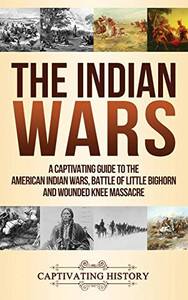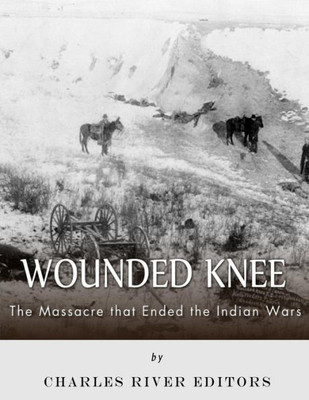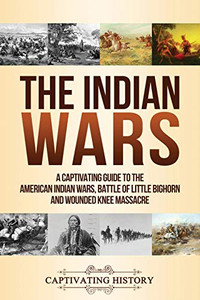*Includes pictures of important people and scenes of the massacre. *Includes accounts of Wounded Knee *Includes a bibliography for further reading. "General Nelson A. Miles who visited the scene of carnage, following a three day blizzard, estimated that around 300 snow shrouded forms were strewn over the countryside. He also discovered to his horror that helpless children and women with babes in their arms had been chased as far as two miles from the original scene of encounter and cut down without mercy by the troopers. ... Judging by the slaughter on the battlefield it was suggested that the soldiers simply went berserk. For who could explain such a merciless disregard for life?" - Hugh McGinnis, 7th Cavalry Among all the events in the strained relations between the U.S. government and Native Americans during the 19th century, the most notorious and defining one was what is today called the Wounded Knee Massacre. Technically, it was the last armed engagement between Sioux warriors and the U.S. military, and it marked the end of effective resistance by any Sioux bands, but what actually occurred is far more controversial. In late December 1890, a group of roughly 350 Lakota Sioux led by Big Foot and Spotted Elk were escorted to the Wounded Knee Creek area and ordered to establish a camp there, but fearing another possible uprising despite the fact the band was comprised mostly of women, about 500 U.S. Army troops from the 7th Cavalry Regiment, led by Major Samuel M. Whitside, approached the Lakota encampment on the morning of December 29 with orders to disarm and escort the Native Americans to a railhead for transport to Omaha, Nebraska. Some of the men in the 7th Cavalry had also been part of the 7th Cavalry at Little Bighorn, so there could not have been a worse command to send on a mission that required interacting with the Lakota. As the troopers entered the encampment, a shot rang out. It is unclear who fired, but regardless, the single shot triggered a fusillade from the Army troops. One of the Army soldiers, Captain Edward Godfrey, explained, "I know the men did not aim deliberately and they were greatly excited. I don't believe they saw their sights. They fired rapidly but it seemed to me only a few seconds till there was not a living thing before us; warriors, squaws, children, ponies, and dogs ... went down before that unaimed fire." The resulting assault would eventually kill most of the Native Americans, including both Big Foot and Spotted Elk. Approximately 30 U.S. Army soldiers were killed and about 40 were wounded, nearly all struck by friendly fire in the chaotic, close-quarters shooting. Of the Native American dead, most were killed outright, but the wounded were left on the frozen ground to perish during the frigid night. The following day, the frozen bodies - which had been stripped by the soldiers for souvenirs - were buried in mass grave. The Wounded Knee Massacre had several outcomes. The soldiers who participated in the massacre were commended and awarded for their actions, with 20 of them receiving the nation's highest military award, the Congressional Medal of Honor, for action during the "battle." At the same time, Wounded Knee would grow to become a source of inspiration for a generation of Sioux people who came of age in the 1960s, and they sought to reestablish negotiations with the United States as a sovereign and independent nation. The American Indian Movement would engage in confrontational and at times violent resistance to perceived U.S. government oppression at Alcatraz, the Bureau of Indian Affairs building in Washington D.C., and later the town of Wounded Knee, South Dakota, and the Wounded Knee Massacre site. Wounded Knee: The Massacre that Ended the Indian Wars comprehensively covers the background leading up to that infamous day, as well as accounts of what happened and the aftermath.
- | Author: Charles River Charles River Editors
- | Publisher: Createspace Independent Publishing Platform
- | Publication Date: Nov 10, 2017
- | Number of Pages: 74 pages
- | Language: English
- | Binding: Paperback
- | ISBN-10: 1979618917
- | ISBN-13: 9781979618915






